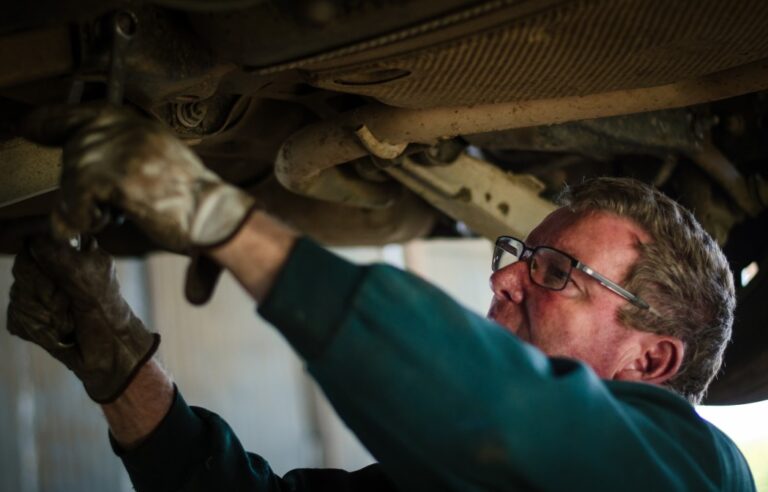Transmission Rebuild vs Replace: Understanding Your Car Repair Options
When it comes to car repairs, few words can cause as much concern as “transmission problems.” Your vehicle’s transmission is a critical component that affects its performance, and when issues arise, you’re faced with a significant decision: should you rebuild or replace your transmission? Understanding the pros and cons of each option is essential for making an informed choice that suits your needs and budget.
Rebuilding a transmission involves disassembling it, inspecting the parts for wear and damage, replacing any faulty components, and then reassembling it to factory specifications. This process can be quite intricate, as the transmission contains numerous parts, but it allows for a thorough refurbishment without the need to replace the entire unit. One of the main advantages of rebuilding is cost-effectiveness. Typically, a rebuild will be less expensive than a full replacement because you’re only paying for the parts that need to be replaced along with the labor for the rebuild. Additionally, rebuilding can be less wasteful, as it prevents a functional transmission casing and other salvageable parts from ending up in a landfill.
On the other hand, replacing a transmission means swapping out the old unit for a new or remanufactured one. This option can be more straightforward since it involves removing the entire problematic transmission and installing a different one. A replacement might be the best route if your transmission is severely damaged or if the cost of rebuilding exceeds the cost of replacement. Moreover, opting for a replacement can sometimes offer a quicker turnaround time, getting you back on the road faster. It also provides peace of mind, as new or remanufactured transmissions often come with warranties, ensuring protection against future issues.
However, the decision isn’t always clear-cut. The right choice depends on several factors, including the age and condition of your vehicle, the extent of the transmission damage, and your long-term plans for the car. For instance, if you have an older vehicle with high mileage, investing in a rebuild might extend its life without the higher cost of a full replacement. Conversely, for a newer car or one that you plan to keep for many years, replacing the transmission could be a worthwhile investment to ensure reliability and performance.
It’s also important to consider the reputation and expertise of the mechanic or repair shop handling your transmission. A skilled technician can make a significant difference in the quality of a rebuild, ensuring that it lasts as long as, or even outlasts, a replacement unit. Don’t hesitate to ask questions about the process, the parts that will be used, and the warranty offered on the work performed.
Ultimately, whether you choose to rebuild or replace your transmission, the goal is to get your vehicle back in optimal running condition. Weighing the benefits and drawbacks of each option, taking into account your personal circumstances, and consulting with trusted automotive professionals will guide you toward the best decision for your car and your wallet. Remember, a well-informed choice will not only save you money in the short term but also contribute to the longevity and reliability of your vehicle in the years to come.
The Pros and Cons of Rebuilding vs. Replacing Your Transmission

When it comes to dealing with a faulty transmission, car owners are often faced with a critical decision: should they rebuild or replace it? This choice can significantly impact both the short-term performance and long-term value of the vehicle. Understanding the pros and cons of each option is essential for making an informed decision that aligns with your needs, budget, and future plans for your car.
Rebuilding a transmission involves disassembling it, inspecting the parts for damage, replacing worn out components, and then reassembling it to factory specifications. One of the main advantages of rebuilding is cost-effectiveness. Typically, it is less expensive than replacing the entire unit because you only pay for the labor and the parts that need to be replaced. Moreover, rebuilding can be a more environmentally friendly option since it reduces waste by reusing many parts of the existing transmission.
Another benefit of rebuilding is that it can be tailored to the specific problems of your transmission. Skilled mechanics can focus on the exact issues at hand, ensuring that the rebuilt transmission is as good as new, if not better. This process also allows for upgrades to be made, potentially enhancing the performance of your vehicle.
However, rebuilding a transmission is not without its drawbacks. The quality of the rebuild largely depends on the expertise of the mechanic. If not done correctly, the same issues could resurface, leading to additional costs down the line. Additionally, rebuilding can be time-consuming, as it requires a thorough inspection and precise work, which means you might be without your vehicle for a longer period.
On the flip side, replacing a transmission means installing a new or remanufactured unit. The primary advantage of replacement is reliability. A new transmission is fresh from the factory, equipped with the latest updates and improvements, and typically comes with a manufacturer’s warranty. This can provide peace of mind, knowing that the likelihood of encountering transmission problems soon after replacement is minimal.
Furthermore, replacing a transmission is generally faster than rebuilding one. Since the unit comes pre-assembled, the mechanic can simply swap out the old transmission for the new one, significantly reducing the time your car is out of commission.
Nevertheless, replacement also has its disadvantages. It is usually the more expensive route, as you’re paying for a completely new transmission. Additionally, if you opt for a remanufactured transmission, while less costly than a brand-new one, there’s still a chance it may not match the exact specifications of your vehicle’s original transmission, which could affect performance.
Ultimately, the decision to rebuild or replace your transmission hinges on several factors, including the extent of the damage, the age and value of your vehicle, and your personal preferences. If your car is relatively new or holds significant value to you, investing in a replacement might be the wiser choice. Conversely, if you’re looking to save money and reduce waste, or if your vehicle is older and perhaps nearing the end of its life, rebuilding could be the more practical and economical option.
In conclusion, both rebuilding and replacing a transmission have their merits. By weighing the pros and cons carefully and consulting with a trusted mechanic, you can choose the path that best suits your situation and ensures that your vehicle remains a reliable companion on the road for years to come.
Expert Transmission Advice: Should You Rebuild or Replace?
When it comes to transmission troubles, the dilemma of whether to rebuild or replace is a common quandary for vehicle owners. The transmission is a critical component of your vehicle, responsible for transferring power from the engine to the wheels. It’s a complex system, and when it fails, you’re faced with a significant decision that can have long-term financial and performance implications for your car. Understanding the pros and cons of each option is crucial in making an informed decision.
Rebuilding a transmission involves disassembling it, inspecting the parts for wear and damage, replacing any faulty components, and then reassembling it to factory specifications. This process can be time-consuming, but it allows for a thorough examination of the transmission’s internal components. One of the main advantages of rebuilding is that it often addresses the specific issues that caused the failure, ensuring that the rebuilt transmission is tailored to your vehicle’s needs. Additionally, because you’re retaining the original transmission, there’s no concern about compatibility issues that might arise with a replacement.
Moreover, rebuilding can be more cost-effective than replacing the entire unit. Since you’re only paying for the parts that need to be replaced and the labor for the rebuild, it can be a more economical solution in the short term. Furthermore, a well-rebuilt transmission can often last as long as a new one, provided that the work is done by an experienced technician who uses high-quality parts.
On the other hand, replacing a transmission typically means installing a new or remanufactured unit. A new transmission is just that—brand new, with all new parts and the latest updates from the manufacturer. A remanufactured transmission has been returned to factory specifications, with all worn or defective parts replaced, and often comes with a warranty. Replacement can be the best option if your transmission has suffered extensive damage or if the cost of rebuilding would be comparable to the cost of a new or remanufactured unit.
The primary benefit of replacing your transmission is reliability. With a new or remanufactured transmission, you’re getting a unit that should perform like new, which can provide peace of mind. Additionally, the replacement process is generally quicker than a rebuild, as it doesn’t require the same level of labor-intensive work. This means you can get back on the road faster, which is a significant consideration for those who rely on their vehicle for daily activities.
However, it’s important to note that replacing a transmission is often more expensive upfront. The cost of a new or remanufactured transmission unit can be substantial, and when you factor in labor costs, it might not be the most budget-friendly option. Furthermore, there’s always a slight risk of compatibility issues when installing a transmission that wasn’t originally designed for your vehicle.
Ultimately, the decision to rebuild or replace your transmission will depend on several factors, including the extent of the damage, the age and value of your vehicle, and your long-term plans for the car. If you’re planning to keep your vehicle for many years, investing in a rebuild or a high-quality replacement might make the most sense. Conversely, if you’re considering selling the vehicle in the near future, you may opt for the most cost-effective solution that will get the car running reliably again.
In conclusion, both rebuilding and replacing a transmission have their merits. It’s essential to consult with a trusted transmission expert who can provide a detailed assessment of your vehicle’s condition and help you weigh the options. With their guidance and your understanding of the pros and cons, you’ll be well-equipped to make the best choice for your transmission needs.

